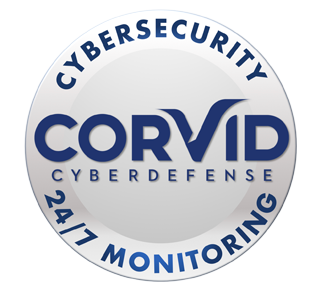 Estate planning is an important process that helps individuals organize their financial and personal affairs for the future. A well-structured plan can help clarify how assets should be handled and distributed while addressing key considerations such as healthcare decisions and legal documents. Taking time to create or update an estate plan can help align arrangements with personal preferences and family needs. Below, we’ll discuss estate planning essentials to help you build a comprehensive plan.
Estate planning is an important process that helps individuals organize their financial and personal affairs for the future. A well-structured plan can help clarify how assets should be handled and distributed while addressing key considerations such as healthcare decisions and legal documents. Taking time to create or update an estate plan can help align arrangements with personal preferences and family needs. Below, we’ll discuss estate planning essentials to help you build a comprehensive plan.
Estate Planning Essentials: Key Components
- Creating a Will
A will outlines how assets should be distributed and who will be responsible for managing affairs after passing. It can also designate guardians for minor children and specify other important instructions. Without a will, state laws determine how assets are distributed, which may not always align with personal wishes. Reviewing and updating a will periodically can help keep it current.
- Establishing Beneficiaries
Beneficiary designations on accounts such as life insurance policies, retirement plans, and payable-on-death bank accounts are one of the most important estate planning essentials. These designations take precedence over instructions in a will. Reviewing and updating these designations can help ensure that assets are distributed according to current preferences, especially after major life changes such as marriage, divorce, or the birth of a child.
- Setting Up a Power of Attorney
A power of attorney document allows a designated individual to handle financial or legal matters if the account holder is unable to do so. This can apply to managing bank accounts, paying bills, or handling property transactions. Choosing a trusted person for this role is an important decision that should be reviewed as circumstances change.
- Planning for Healthcare Decisions
A healthcare directive, also known as an advance directive or living will, outlines medical preferences in case of serious illness or incapacity. This document can include instructions on treatments, life support, and other healthcare choices. Assigning a healthcare proxy or medical power of attorney allows a trusted individual to make medical decisions if necessary.
- Considering a Trust
When it comes to estate planning essentials, a trust can be useful for managing assets and specifying how they should be distributed over time. Trusts may help with specific goals, such as providing for minor children, supporting charitable causes, or managing property for future generations. Different types of trusts serve different purposes, so careful planning is important when deciding if this approach aligns with long-term objectives.
- Reviewing Estate Taxes and Financial Implications
Depending on the size and structure of an estate, tax considerations may play a role in planning. Understanding potential tax obligations and exploring strategies to manage them can be an important component of your estate planning essentials. Consulting with financial or legal professionals may provide insight into available options based on individual circumstances.
- Organizing Important Documents
Keeping estate planning documents in a safe and accessible location can help loved ones manage affairs when the time comes. This includes wills, trusts, power of attorney documents, insurance policies, property deeds, and financial account details. Informing trusted individuals of where to find these documents can help facilitate the process when needed.
- Updating the Plan Over Time
Life circumstances, financial situations, and legal requirements change over time. Reviewing estate plans regularly and making updates after major life events can help keep them aligned with current preferences and needs. Births, deaths, marriages, divorces, and financial changes are all reasons to revisit an estate plan.
Estate Planning Essentials: Taking Steps Toward a Thoughtful Plan
Your estate planning essentials include making decisions that shape how financial and personal matters are handled in the future. Taking time to create or update a plan can help provide clarity and direction for loved ones while reflecting personal wishes. Organizing documents, selecting trusted individuals for key roles, and reviewing plans periodically can help keep arrangements up to date.
Sources:






















 Megan Jones joined the ILG Financial team in 2020 as marketing director. Megan and her husband live in Fredericksburg, VA with their German Short Haired Pointer, Gus. Megan is a graduate of Longwood University and holds a degree in communications. Megan is the oldest of Dave Lopez’s three children and not only enjoys working alongside her father, but also with her cousin, Chase, who joined the ILG Financial team in 2020 as an advisor. Megan is also a fully licensed Life, Health, and Annuity agent. When not at work, Megan enjoys sitting on the back porch with family and friends enjoying food and music.
Megan Jones joined the ILG Financial team in 2020 as marketing director. Megan and her husband live in Fredericksburg, VA with their German Short Haired Pointer, Gus. Megan is a graduate of Longwood University and holds a degree in communications. Megan is the oldest of Dave Lopez’s three children and not only enjoys working alongside her father, but also with her cousin, Chase, who joined the ILG Financial team in 2020 as an advisor. Megan is also a fully licensed Life, Health, and Annuity agent. When not at work, Megan enjoys sitting on the back porch with family and friends enjoying food and music. Chase Lopez joined the ILG Financial team in 2020 as an advisor. Chase is a 2016 James Madison University graduate with a degree in management. Chase has been trained under the tutelage of Dave Lopez, who is not only the founder and managing member of ILG Financial, but also is Chase’s uncle and godfather. He also enjoys working alongside his cousin, Megan, who is Dave’s daughter.
Chase Lopez joined the ILG Financial team in 2020 as an advisor. Chase is a 2016 James Madison University graduate with a degree in management. Chase has been trained under the tutelage of Dave Lopez, who is not only the founder and managing member of ILG Financial, but also is Chase’s uncle and godfather. He also enjoys working alongside his cousin, Megan, who is Dave’s daughter. Amy Anderson joined the ILG Financial team in 2023 as the client relations coordinator. Her responsibilities include scheduling of appointments, annual check-up notifications, and annuity and required minimum distribution assistance. She is a graduate of Harding University with a degree in Computer Information Systems. Amy and her husband have two children and she enjoys reading, crocheting, music and spending time with her family.
Amy Anderson joined the ILG Financial team in 2023 as the client relations coordinator. Her responsibilities include scheduling of appointments, annual check-up notifications, and annuity and required minimum distribution assistance. She is a graduate of Harding University with a degree in Computer Information Systems. Amy and her husband have two children and she enjoys reading, crocheting, music and spending time with her family. Jessica Carson joined the ILG Financial team in 2018 as an agent. Jessica and her husband have four children, two dogs, 3 barn cats, 5 chickens, and three parakeets. She indeed loves her children and pets! When not at work, Jessica enjoys playing the piano and cello as well as traveling and spending time outside with her family, hiking, fishing, and boating.
Jessica Carson joined the ILG Financial team in 2018 as an agent. Jessica and her husband have four children, two dogs, 3 barn cats, 5 chickens, and three parakeets. She indeed loves her children and pets! When not at work, Jessica enjoys playing the piano and cello as well as traveling and spending time outside with her family, hiking, fishing, and boating. Terri Center joined the ILG Financial team in 2019 as client services manager. She handles client records, application processing, and gathering information to provide a professional and friendly experience with all of our clients. Terri is a graduate of Oakland University. She is married and has two children. She enjoys hiking, family time, and puzzle challenging video games. She also likes to share her creativity in her canvas paintings and sewing projects.
Terri Center joined the ILG Financial team in 2019 as client services manager. She handles client records, application processing, and gathering information to provide a professional and friendly experience with all of our clients. Terri is a graduate of Oakland University. She is married and has two children. She enjoys hiking, family time, and puzzle challenging video games. She also likes to share her creativity in her canvas paintings and sewing projects.